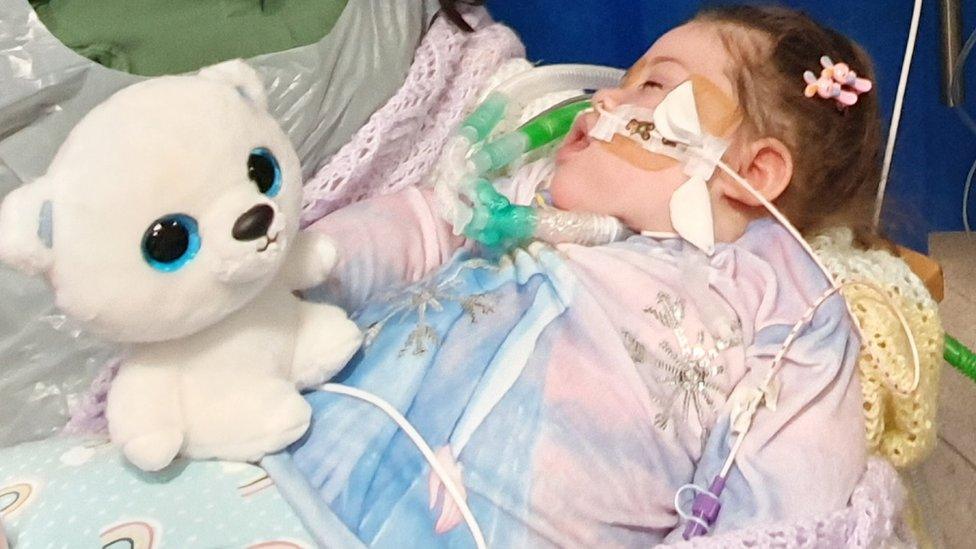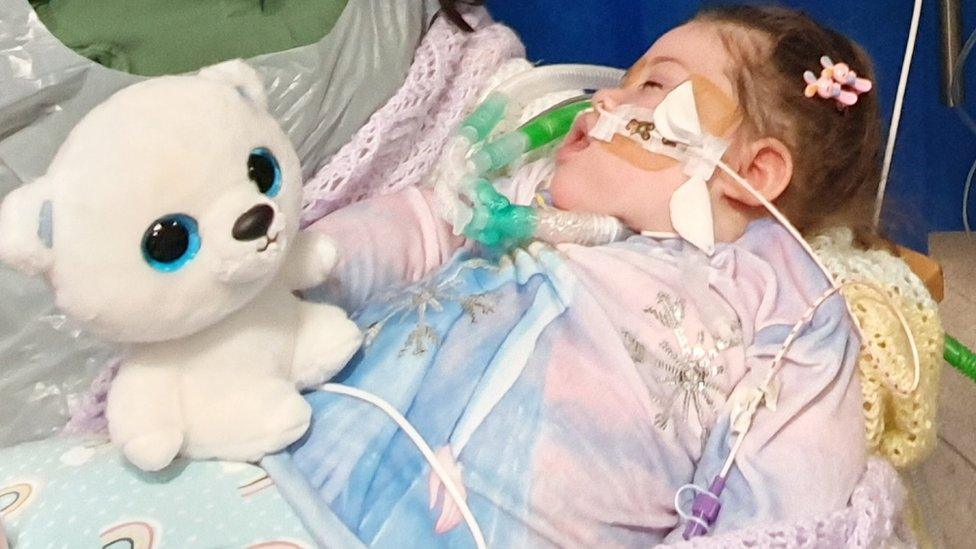Alta Fixsler: Parents lose legal fight over ill girl's final moments
- Published

Alta Fixsler suffered a brain injury at birth and cannot breathe, drink or eat without medical help
The parents of a seriously-ill girl have lost a legal fight over where the two-year-old should end her life.
Alta Fixsler's parents have been in a dispute with Manchester University NHS Foundation Trust over her care.
They wanted her life support treatment to be withdrawn at home but the trust argued it should happen in hospital or at a hospice.
A High Court judge has ruled Alta's treatment should be withdrawn in a children's hospice.
Mr Justice MacDonald, who considered the case in the family division of the High Court, said he was satisfied that it was in Alta's best interests for the withdrawal of life-sustaining treatment to take place at a children's hospice.
Alta suffered a brain injury at birth and cannot breathe, drink or eat without medical help.
Alta's parents, who are Hasidic Jews, previously lost their fight to stop the removal of their daughter's life support, having argued it was against their faith.
'Further pain'
Alta's father, who cannot be named for legal reasons, previously told BBC Radio 4's Today programme that taking her home was "something that we wanted from day one when the doctors said she is not going to live more than a few hours".
In the judge's written ruling, he said that removing her life support in a children's hospice "best accommodates Alta's welfare need for specialist care at the end of her life under a reliable, safe and sustainable system of high calibre care protected from disruption, whilst allowing, in so far as possible and consistent with Alta's best interests, the family and the community to perform the sacred religious obligations of the Orthodox Jewish faith".
Her parents have previously failed to persuade a High Court judge to allow them to move their daughter from England to a hospital in Israel
The trust and other medical experts told the court Alta has no chance of recovery but her parents argued it was against their faith to remove life-sustaining treatment and also against their rights as parents.
They asked the High Court for permission to take her to an Israeli hospital or to the US, where she has been granted a visa because of her father's US citizenship.
However, a judge ruled that it was in Alta's "best interests" to withdraw treatment and taking her abroad would expose her to "further pain".
That ruling was later upheld by the European Court of Human Rights.
A spokesperson for the trust said: "We recognise that this is an incredibly difficult and distressing time for Alta's family and we will continue to support them.
"Due to confidentiality we are unable to comment further."

Why not follow BBC North West on Facebook, external, Twitter, external and Instagram, external? You can also send story ideas to northwest.newsonline@bbc.co.uk
Related topics
- Published23 August 2021

- Published4 August 2021

- Published28 July 2021

- Published9 June 2021

- Published28 May 2021

- Published20 May 2021

- Published19 May 2021
